Protect Our Pollinators
go.ncsu.edu/readext?807748
en Español / em Português
El inglés es el idioma de control de esta página. En la medida en que haya algún conflicto entre la traducción al inglés y la traducción, el inglés prevalece.
Al hacer clic en el enlace de traducción se activa un servicio de traducción gratuito para convertir la página al español. Al igual que con cualquier traducción por Internet, la conversión no es sensible al contexto y puede que no traduzca el texto en su significado original. NC State Extension no garantiza la exactitud del texto traducido. Por favor, tenga en cuenta que algunas aplicaciones y/o servicios pueden no funcionar como se espera cuando se traducen.
Português
Inglês é o idioma de controle desta página. Na medida que haja algum conflito entre o texto original em Inglês e a tradução, o Inglês prevalece.
Ao clicar no link de tradução, um serviço gratuito de tradução será ativado para converter a página para o Português. Como em qualquer tradução pela internet, a conversão não é sensivel ao contexto e pode não ocorrer a tradução para o significado orginal. O serviço de Extensão da Carolina do Norte (NC State Extension) não garante a exatidão do texto traduzido. Por favor, observe que algumas funções ou serviços podem não funcionar como esperado após a tradução.
English
English is the controlling language of this page. To the extent there is any conflict between the English text and the translation, English controls.
Clicking on the translation link activates a free translation service to convert the page to Spanish. As with any Internet translation, the conversion is not context-sensitive and may not translate the text to its original meaning. NC State Extension does not guarantee the accuracy of the translated text. Please note that some applications and/or services may not function as expected when translated.
Collapse ▲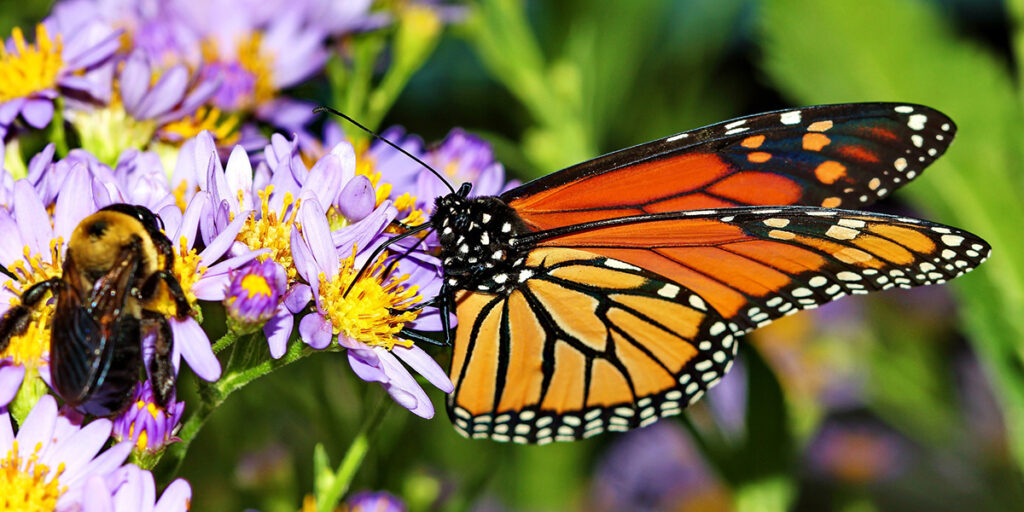
What is a Pollinator?
A pollinator is anything that helps carry pollen from the male part of the flower (stamen) to the female part of the same or another flower (stigma). This movement of pollen must occur for plants to become fertilized and produce fruits, seeds, and young plants. Wind, water, bees, moths, butterflies, birds, flies, and even birds and bats can be pollinators!
Why do we need Pollinators?
Pollinators provide one out of every three bites of food we eat including fruits, vegetables and seeds. Pollinators also support the food and habitats of other animals as well as help maintain a healthy ecosystem.
How can we Protect our Pollinators?
Plant a Pollinator Garden
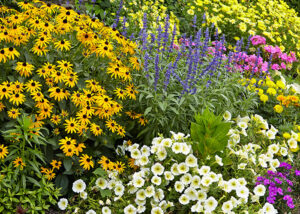
Create a Bee Bath – use a birdbath or shallow pot filled with rocks and water
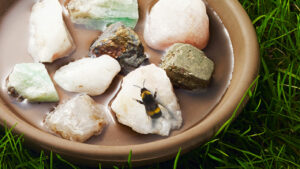
Protect Pollinators from Pesticides
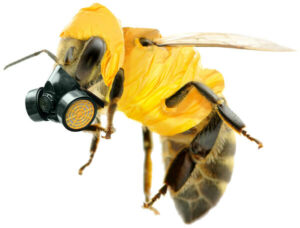
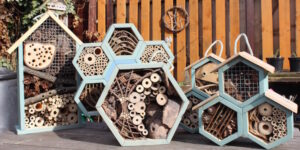
Support Local Beekeepers – Burke County Beekeepers Association
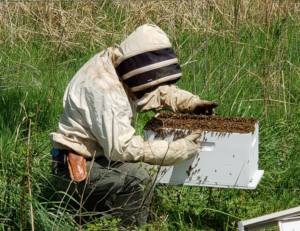
Kids Corner 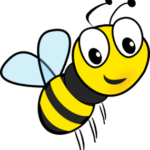
Did you know that one out of every three bits of food we take is thanks to a pollinator? Yep, my friends, it’s true. That buzzing of bees on your tomatoes, cukes, and beans means that you are going to have some tasty veggies and fruit in the near future. Thanks bees!
Let’s Do It!
-
Watch the Pollination video.
-
Go out into your garden or take a walk.
-
Do you see any pollinators? What are they doing? Can you see them drinking nectar or collecting pollen?
-
Missed our pollinator checklist? Print this and see how many you can find!
Let’s Talk about It!
-
Why is pollination so important?
-
What can you do to help steward our pollinators?
Round and Waggle Dance
Download and print Bee Pollen Popular activity book for fun activities and information about pollinators!




